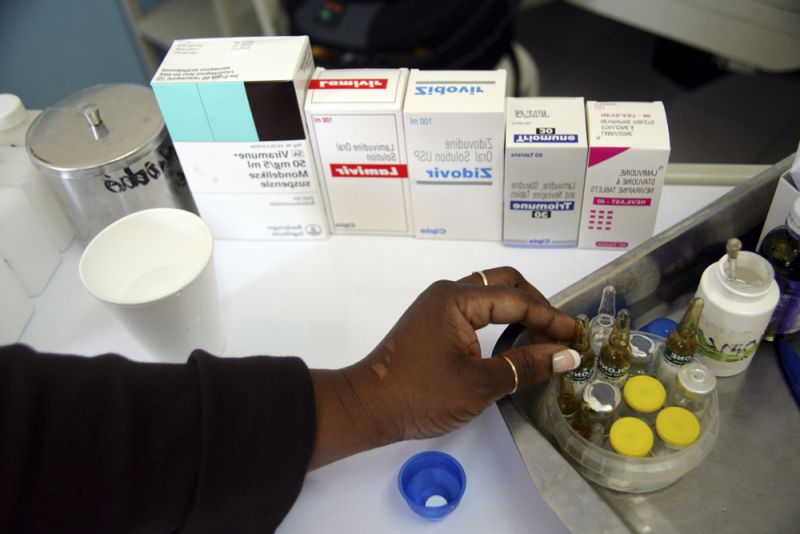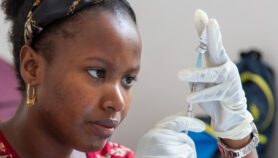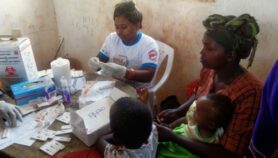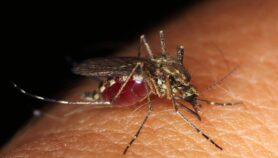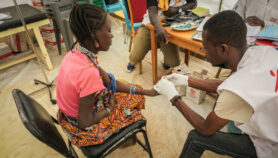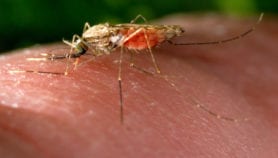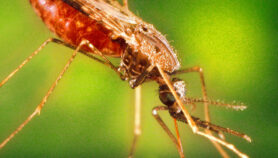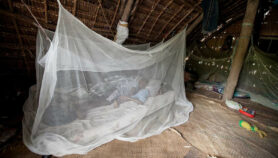By: Barbara Axt
Send to a friend
The details you provide on this page will not be used to send unsolicited email, and will not be sold to a 3rd party. See privacy policy.
A drug used for decades against river blindness and elephantiasis in Africa, is being hailed as the newest weapon against malaria.
A study shows that, when given periodically to people in high-transmission areas, the drug ivermectin can reduce malaria transmission by killing mosquitoes that carry the disease.
The first results of the trial carried out in Burkina Faso were presented last week at the annual meeting of the American Society of Tropical Medicine & Hygiene by Brian Foy from Colorado State University in the United States.
“Mosquitoes develop resistance to drugs and change behaviours… they will eventually, always, outsmart us.”
Carlos Chaccour, Barcelona Institute for Global Health, Spain
Weeks earlier, William Campbell and Satoshi Ōmura received the Nobel Prize in Physiology or Medicine for their 1978 discovery of avermectin, the drug from which ivermectin is derived. Ivermectin is widely used against diseases caused by parasitic worms — including river blindness and elephantiasis, which used to be a huge burden in poor villages in Africa.
For this study, Foy and a team including researchers from the Research Institute for Health Sciences in Burkina Faso compared two groups of four villages, each with a high incidence of malaria.
In the first four villages, ivermectin was given only once in a year as part of a regular mass drug administration against river blindness and elephantiasis. The population of the other four villages also received follow-up doses every three weeks, which were found to reduce malaria transmission by 16 per cent compared with the first group.
“It means that we averted 94 cases of malaria in children during the rainy season,” explains Foy. “And it’s important to remember that these villages were already using mosquito nets” and insecticide spraying, he says.
Although ivermectin cannot be used to treat those who are already infected, it kills mosquitoes that feed on the blood of people treated with the drug. Repeated doses keep the drug at an effective level in the bloodstream.
“This is the first study to show an impact on clinical malaria when used in a formal trial situation,” says Brian Greenwood, a clinical tropical medicine researcher at the London School of Hygiene & Tropical Medicine in the United Kingdom. “An advantage of ivermectin is that it is a cheap drug and has been given to millions of people to control [other] infections and shown to be safe,” he says, adding that this is “definitely an approach worth pursuing” to fight malaria.
Together with Foy and other researchers, Chaccour set up the Ivermectin Research for Malaria Elimination Network, which aims to coordinate efforts in this growing research area. “Mosquitoes develop resistance to drugs and change behaviours,” Chaccour says. “They will eventually, always, outsmart us. That’s why we need to be on the constant look out for innovation.”


